The Menace of Mechanical
Music
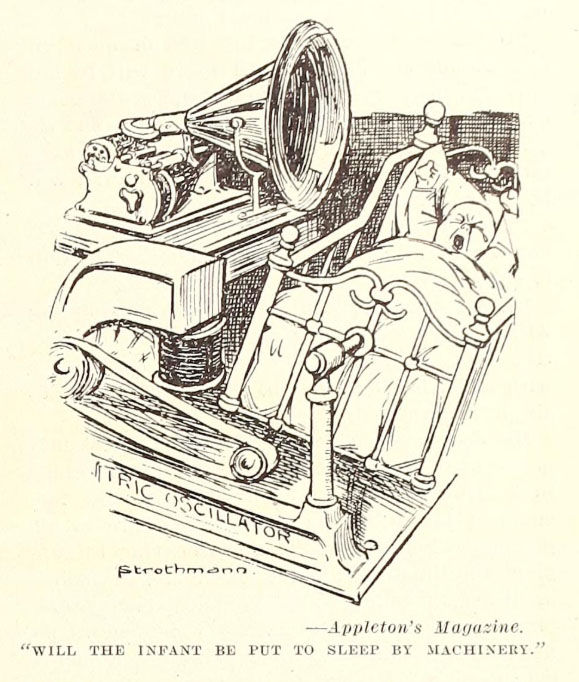
The following illustrations
are from John Philip Sousa's article in Appleton's
Magazine, "The Menace of Mechanical Music,"
September 1906.
Questions
in popular culture about recorded music vs. live music are ongoing
although the benefits and accessibility of recorded music seem obvious
and numerous. But the disparity between the people who actually
attend live music and those who essentially never leave their earbuds
is growing, also evidenced by the number of streaming counts reported
by streaming services. Although Sousa's fears were overstated, he
shouldn't be completely dismissed.
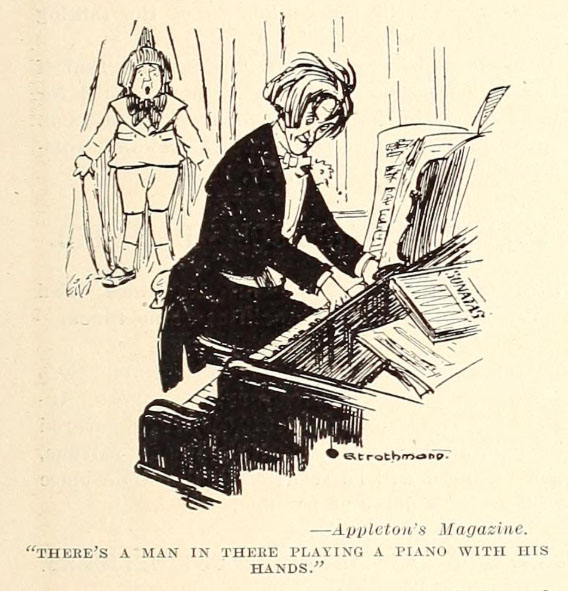

Appleton's Magazine
and John Philip Sousa's article "The Menace of Mechanical Music,"
reprinted by The Talking Machine World, August 1906.
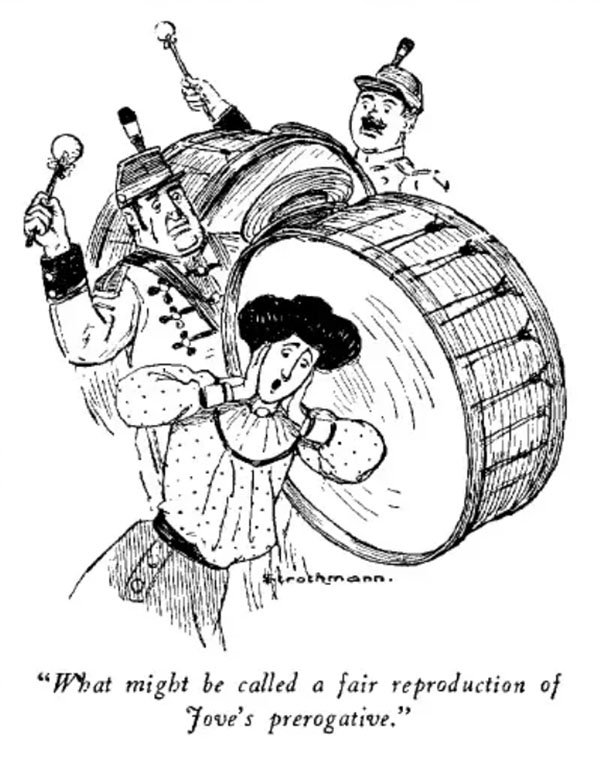
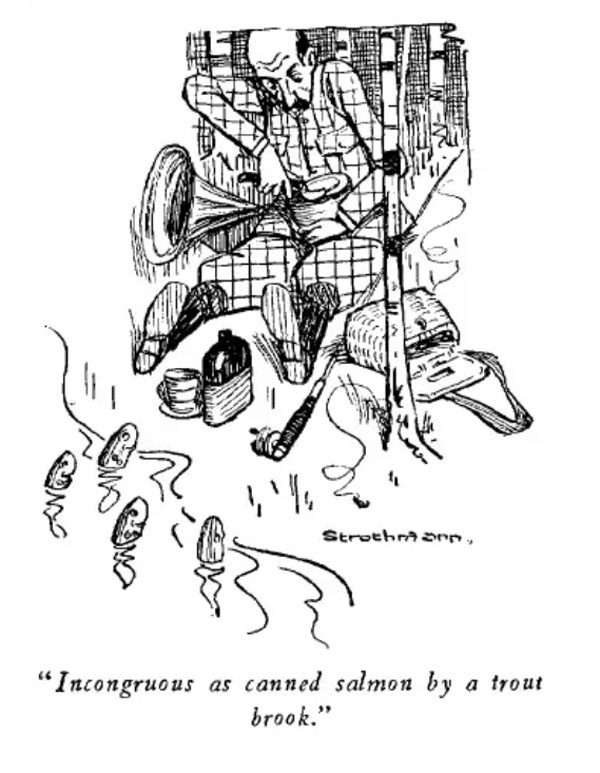

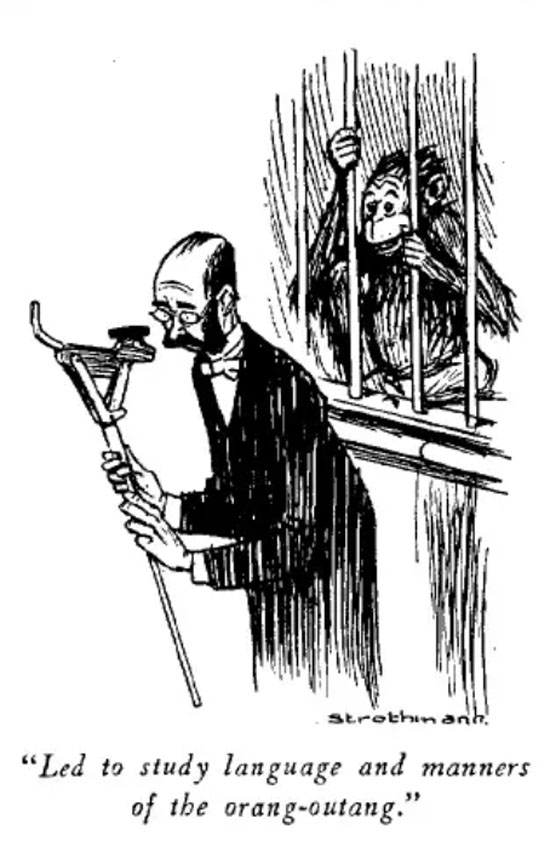
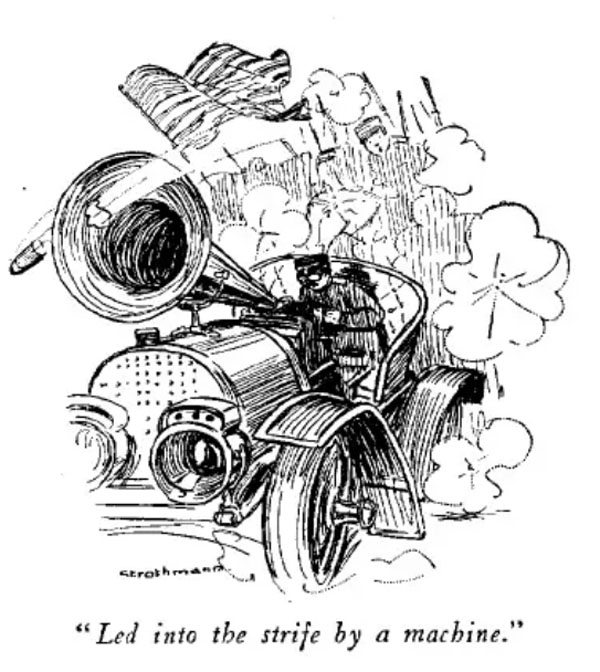
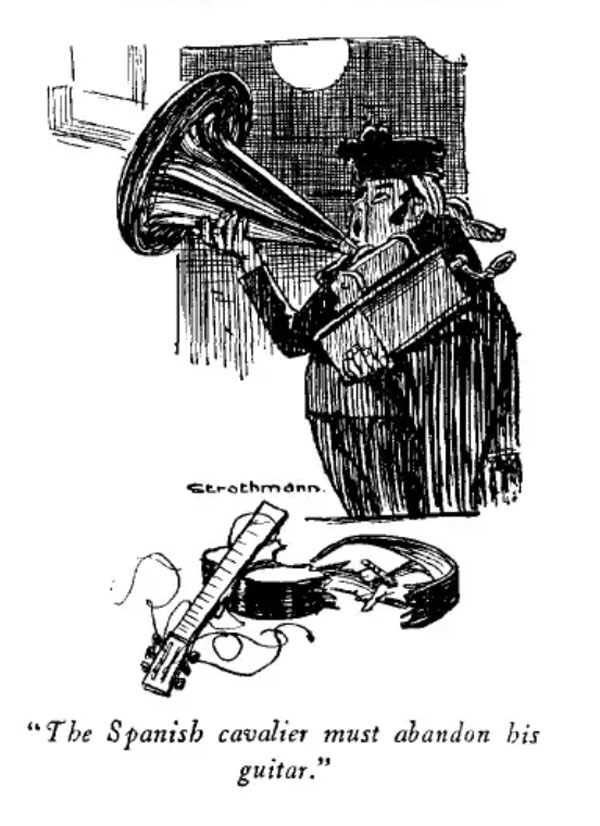
Aristotle
and the Automated Harp (ca. 350 BCE)
Aristotle circa 350 BCE
saw the possibility of an automated harp in the context
of how mankind could be freed up by automation to pursue wisdom
and not on drudgery tasks of daily life.
In the Politics
(c. 350 BCE) Aristotle describes the condition where "each
(inanimate) instrument could do its own work, at the word of command
or by intelligent anticipation, like the statues of Daedalus or
the tripods made by Hephaestus, of which Homer relates that
“Of their own motion
they entered the conclave of Gods on Olympus” as if a shuttle should
weave of itself, and a plectrum should do its own harp playing.
An
Edison ad presents Sousa's "unwilling tribute" to the
Phonograph
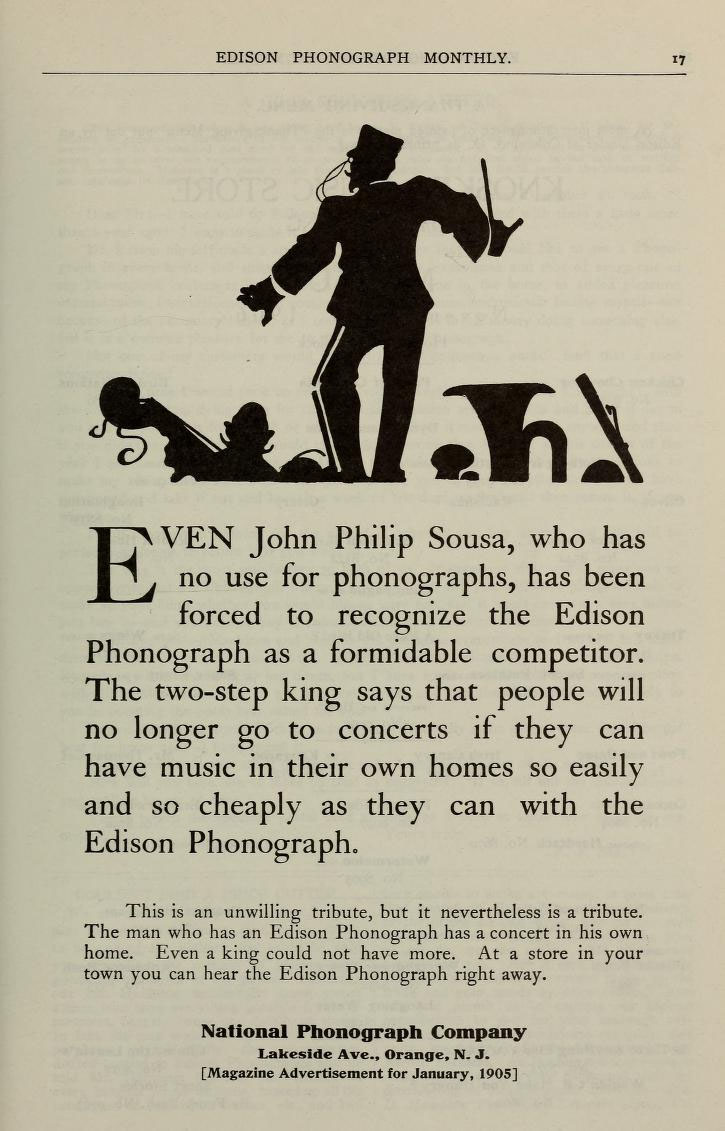
Edison Phonograph
Monthly, January 1907
"All
good music is patriotic"
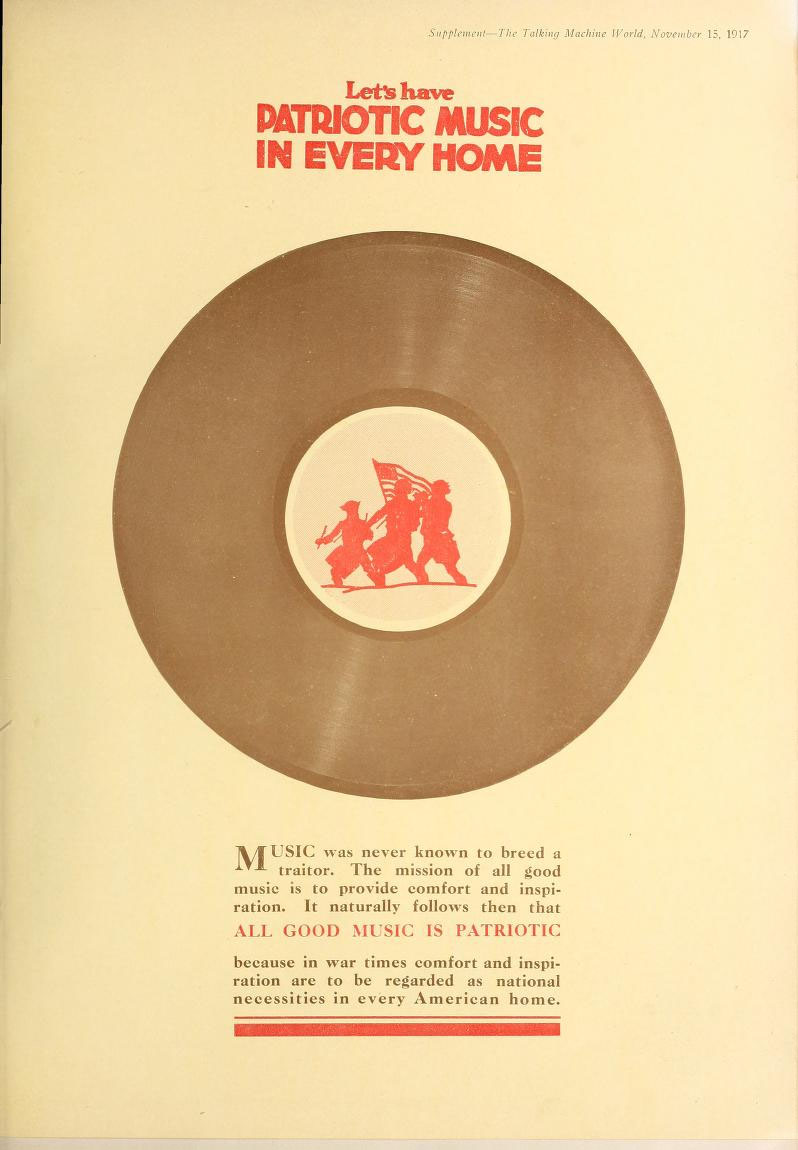
The Talking Machine
World Supplement, November 1917
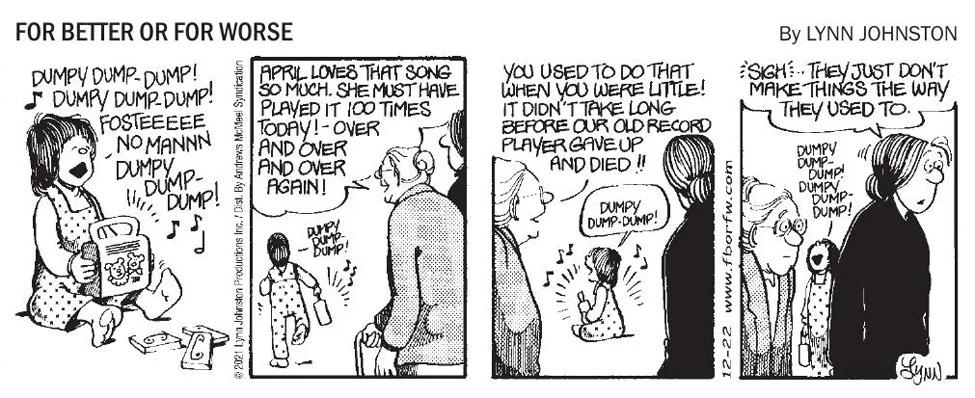
Courtesy Lynn Johnston,
December 22, 2021
Hearing a song played over
and over can be annoying to those who don't like the song. Repetition
of a song is also one of the ways music can be embedded in the brain,
sometimes known as an earworm.
See Our
Song for a Friends of the Phonograph story about how a
recorded song can remain as a memory long after "our old record
player gave up and died."
For an excellent article
about recorded sound with references to Sousa, see
"The Record Effect" By Alex Ross, The New Yorker,
May 29, 2005.
Also recommended by Ross
are the following:
“Capturing Sound: How Technology
Has Changed Music” by Mark Katz, University of California Press, 2010.
“Setting the Record Straight:
A Material History of Classical Recording” by Colin Symes, Wesleyan
University Press, 2004.
“Performing Music in the
Age of Recording” by Robert Philip, Yale University Press, 2014.

Phonographia